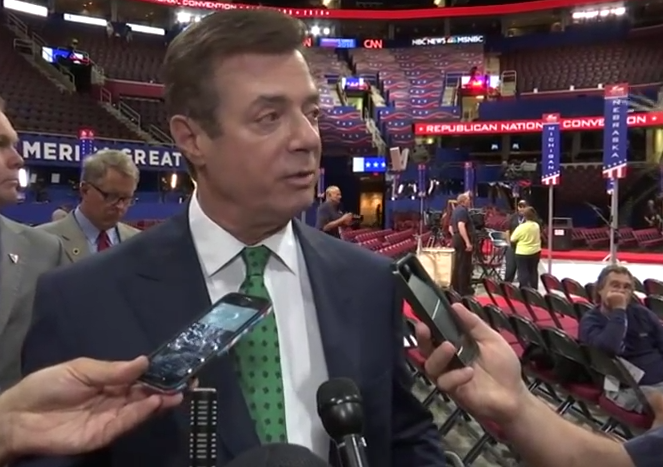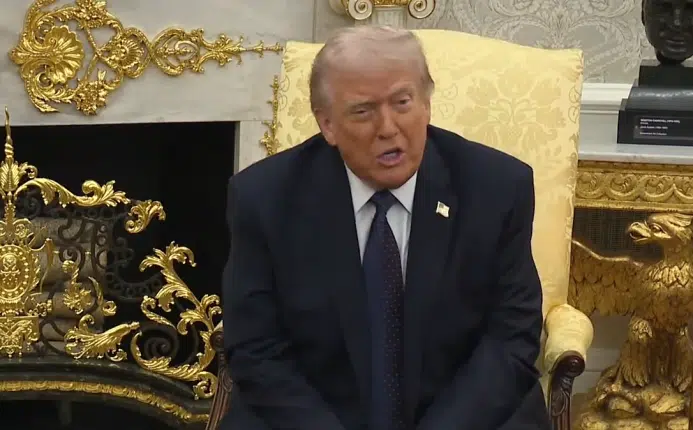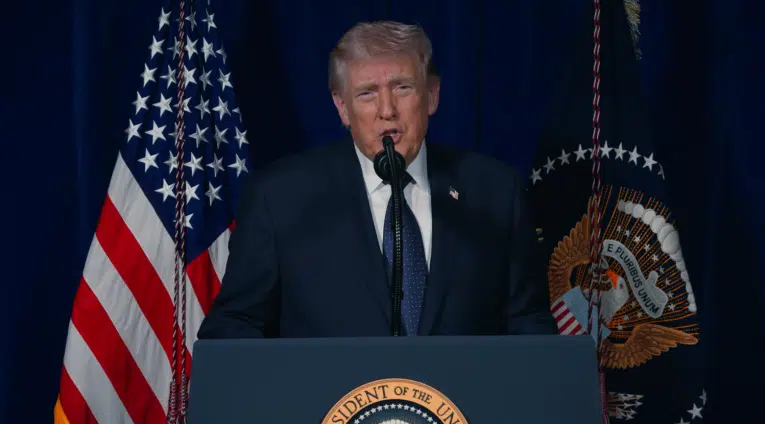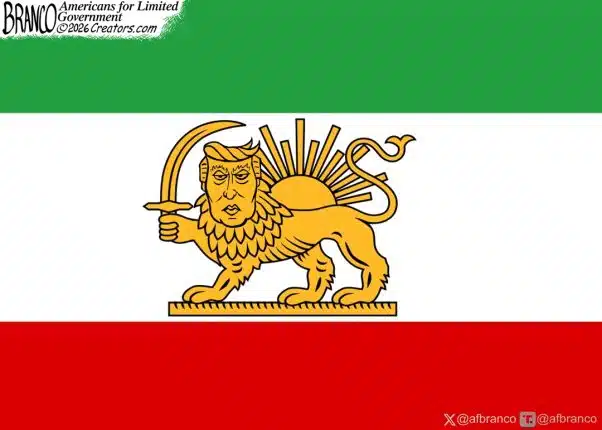“Paul Manafort is absolutely correct that the charges he is facing far exceed the original mandate of potential contacts between the Trump campaign and the Russian government, and have gone years into the past prior to the 2016 election campaign and in many cases do not even invoke official Russian government contacts.”
That was Americans for Limited Government President Rick Manning’s reaction to a legal complaint filed by one-time Trump campaign manager Paul Manafort against the Justice Department contending that Special Counsel Robert Mueller has far exceeded the original mandate set forth by Deputy Attorney General Rod Rosenstein.
According to the complaint, “The investigation of Mr. Manafort is completely unmoored from the special counsel’s original jurisdiction to investigate ‘any links and/or coordination between the Russian government and individuals associated with the campaign of President Donald Trump.’”
The complaint added, “Those alleged dealings had no connection whatsoever to the 2016 presidential election or even to Donald Trump.”
Here, Manafort absolutely has a point.
In the 31-page Manafort and Gates indictment, Russia is only mentioned four times. The first to name Manafort’s company, Davis Manafort Partners, Inc., which had some staff in Russia, which is not a crime. And then, that Manafort’s client, former Ukrainian President Viktor Yanukovych and his Party of the Regions was “pro-Russia,” and that after the civil war began in Ukraine, Yanukovych fled to Russia. Also not crimes.
That’s it. No mention of the Russian government or any individuals working for the Russian government.
In fact, the indictment pretty much has nothing to do with the 2016 Trump campaign or even the election, as the allegations made by Mueller appear to predate Manafort’s involvement in the Trump campaign, and are instead to do with business ties in Ukraine.
Manafort advised the election campaign of Yanukovych in 2010 in Ukraine. He became involved in 2004 after Yanukovych’s election win was overturned by the Supreme Court in Ukraine amid the Orange Revolution alleging the election had been rigged.
Once Yanukovych was in office, Manafort lobbied on behalf of pro-Europe, anti-Russia trade agreement, the Ukraine–European Union Association Agreement. But in 2013, Yanukovych pulled out of the deal, leading directly to revolution in Ukraine and the overthrow of Yanukovych from power in 2014.
Sadly, Ukraine has been embroiled in civil war since. The annexation of Crimea by Russia followed shortly thereafter and Yanukovych fled to Russia. If only Manafort’s advice, which did not favor Russia, had been followed.
Mueller’s overreach does not end there. Former National Security Michael Flynn’s guilty plea on misleading or not correctly recollecting to federal investigators in 2017 a conversation he had with Russian Ambassador Sergey Kisylak in Dec. 2016. Although in that case, there was an official Russian government contact, it had nothing to do with the election or the campaign, which by then was over. It was gauging Russia’s reaction to new sanctions that had been slapped on it by the outgoing Obama administration. Also, not illegal.
The guilty plea of George Papadopoulos includes lots of contacts, but only one supposedly directly with any Russian government official. There was also an overseas professor and a Russian female national claiming to be Russian President Vladimir Putin’s niece who were said to have such contacts, but neither of whom are stated to actually be Russian government officials.
And then someone who told Papadopoulos he was with the Russian Ministry of Foreign Affairs tried to help arrange a meeting between then-candidate Donald Trump and Putin, but the meeting never happened. The pair also offered to introduce Papadopoulos to a Russian ambassador in London, that never happened either.
So, were there any real Russian government contacts there at all? Perhaps so, but even if there were, none of that is stated by Mueller as even being crimes. Instead, Papadopoulos pled guilty for not properly recollecting the timeline of events about when he was hired by the Trump campaign.
Which brings us to the biggest problem with the special counsel. As Americans for Limited Government’s Manning noted in his statement, “Federal law requires that a crime have been committed in order for a special counsel to be appointed to specifically investigate. Instead, Special Counsel Robert Mueller was granted wide latitude by Deputy Attorney General Rod Rosenstein to search for a crime that could be tied even loosely to the Justice Department’s unbridled Russia election interference investigation.”
Prior to being interviewed by the FBI, was there a crime for which Papadopoulos was being investigated that occurred during the election campaign? None is stated. The crime occurred in 2017, after the election, when he spoke with investigators.
Same with Flynn. His crime occurred in 2017, after the President was inaugurated, when he spoke with investigators.
And as for Manafort, all his supposed crimes occurred before he joined the Trump campaign in 2016, and which do not relate to official Russian government contacts.
Attorney General Jeff Sessions broadly recused himself from “any existing or future investigations of any matters related in any way to the campaigns for President of the United States.” None of the crimes being prosecuted by Mueller or pled to by defendants occurred in the course of the election campaign, all either before or after.
In other words, we do not really need a special counsel for any of these cases. Not only do they all fall outside the original mandate for the special counsel set up by Rosenstein to look at crimes committed in the course of communicating with Russian government officials — of which none have been found — but the scope of Sessions’ original recusal to do within the time period of the election.
This is an inquisition in search of crimes, which Rosenstein should promptly put a stop to.
Robert Romano is the Vice President of Public Policy at Americans for Limited Government.







